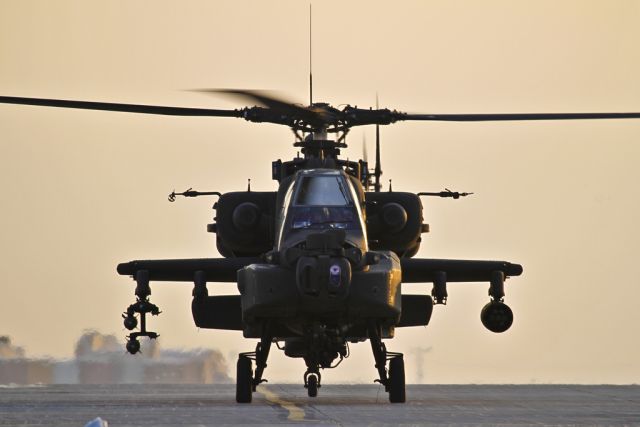Breaking news
Boeing and US officials start negociation on AH-64 Apache attack helicopters massive deal.
| a | |||
| |
|||
World
Defense & Security Industry News - Boeing |
|||
| Boeing and US officials start working on AH-64 Apache attack helicopters massive deal | |||
Officials
from Boeing Co and the U.S. Army said on Wednesday they had begun discussions
about a multiyear agreement to buy about 240 AH-64
Apache helicopters from fiscal 2017 to 2021, a deal that analysts
say could be worth around $4 billion, reported Reuters on January 28. |
|||
U.S. Army acquisition
chief Heidi Shyu recently signed a document allowing both sides to begin
work on a multiyear agreement, with an eye to securing approval from
the defense secretary by March 2016, Colonel Jeff Hager, Apache program
manager, told reporters at an event hosted by Boeing.
Mark Ballew, Boeing's head of business development for attack helicopters, told Reuters that the multiyear agreement could include options for about 100 international sales of the attack helicopter, which would add to its overall value. The U.S. government has already approved Apache sales to Qatar and Indonesia, and those deals are being negotiated now, Ballew said. He said three or four other countries have expressed interest in the helicopter, but declined to name them. He said such deals could take many years to complete, given the complications often involved in the foreign arms market. Boeing hosted a separate meeting about the third successive Apache multiyear agreement with government officials and suppliers on Wednesday at its Washington headquarters. Military services must demonstrate significant savings when asking for approval for multiyear agreements, as compared with the cost of negotiating procurements on a year-by-year basis. There is no specific target, but lawmakers generally look for those savings to amount to around 10 percent Kim Smith, vice president for Boeing's attack helicopter programs, said the company was "absolutely on track" to work with the Army and its suppliers to identify savings that would help justify a multiyear agreement. "We at Boeing have been doing our part to leave no stone unturned," Smith told reporters. Pentagon chief arms
buyer Frank Kendall told the House Armed Services Committee on Wednesday
that he favored multiyear agreements because they allowed program managers
to focus on program performance, and less on yearly contract negotiations. |
|||




















